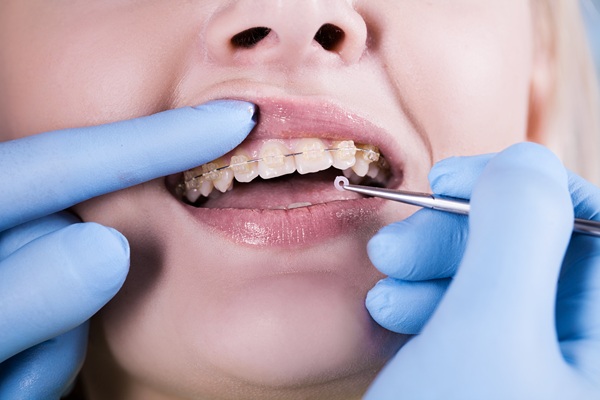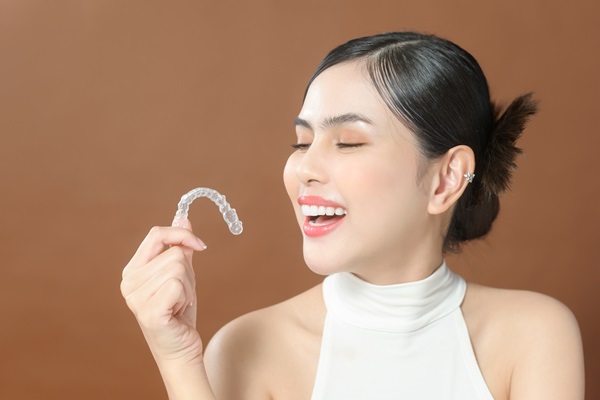 When you finish orthodontic treatment, you will get a
retainer. This appliance is vital in your treatment, as it will help to keep your teeth straight. A lot of work goes into straightening your teeth and aligning your jaw properly. You cannot afford to undo those efforts by neglecting to wear this device as your orthodontist directs. You should also understand how it works and why it is part of the treatment to improve your smile.
When you finish orthodontic treatment, you will get a
retainer. This appliance is vital in your treatment, as it will help to keep your teeth straight. A lot of work goes into straightening your teeth and aligning your jaw properly. You cannot afford to undo those efforts by neglecting to wear this device as your orthodontist directs. You should also understand how it works and why it is part of the treatment to improve your smile.
An overview of a retainer
Various issues can affect a person’s smile. Crooked teeth, bite abnormalities, and spacing issues can hamper anyone’s appearance. Wearing braces or aligners can correct these concerns. After the orthodontist removes the braces or aligners, the patient will get a retainer. This apparatus holds the teeth in place, preventing them from reverting to their former locations in the mouth.
The retainer can be permanently affixed to the back of the teeth. Other types are removable. These include those made of acrylic or plastic that have a wire attached to it. It molds to fit in the mouth. There are also clear retainers that look much like aligners.
Duration of use
The orthodontist will instruct the patient on how often and long to wear the retainer. With removable types, the patient will typically wear it for 24 hours a day for the first three to six months after orthodontic treatment. After this point, the person will wear it at night for the next few months. The orthodontist will evaluate the patient at this point to determine if further use is necessary. Permanent retainers may stay on the person’s teeth indefinitely.
Caring for the appliance
The retainer will be durable and can withstand years of use. Still, it is breakable and can suffer damage. The patient should be cautious when handling it and storing it. When not in use, the appliance should be in a secure case. The patient should also clean removable retainers often by rinsing them and brushing them with a soft-bristled brush but without toothpaste. The orthodontist will periodically follow up with the patient to adjust the device if necessary.
Long-lasting
The orthodontist will provide a retainer that is meant to last for several years. Removable retainers can last for up to 10 years if the patient takes good care of the appliance. Permanent retainers can remain affixed to the back of the teeth for up to 20 years or more. If the patient notices any damage to the device, the orthodontist should know about it right away. The orthodontist may be able to repair it. However, if the damage is significant, the patient may need to get a new one.
A key part of your orthodontic treatment
You put forth a lot of effort and time to straighten your teeth. Once you finish wearing braces or aligners, you need to wear a retainer. Keeping it in your mouth for the recommended time will prevent the teeth from moving once again. With diligence and care, the retainer should do its job for the time you need it and beyond.
Request an appointment or call Michael Emanuel DDS PLLC at 718-635-4822 for an appointment in our Brooklyn office.
Related Posts
Curious about orthodontic treatment? Read on to learn more. Straight teeth and properly aligned jaws make for a healthy and functional smile. Many people are lucky to have naturally straight teeth, but others require orthodontic intervention to correct overcrowding, gaps, or misalignment. In some cases, orthodontic therapy can extend far beyond repositioning the teeth in…
Discovering you need orthodontic care does not have to be a worrisome situation. The orthodontist will help you the whole way, and the staff will guide you on any concerns, ranging from financing to maintenance. If you have booked an appointment with an orthodontist, this piece provides a guide on what to expect and questions…
Maintaining the position of the teeth after orthodontic treatment requires the use of dental retainers. Read on to learn about the different types of retainers available. As soon as the braces or aligners come off, your teeth will begin repositioning themselves to where they were before treatment. To avoid relapse, you should use retainers. They…


